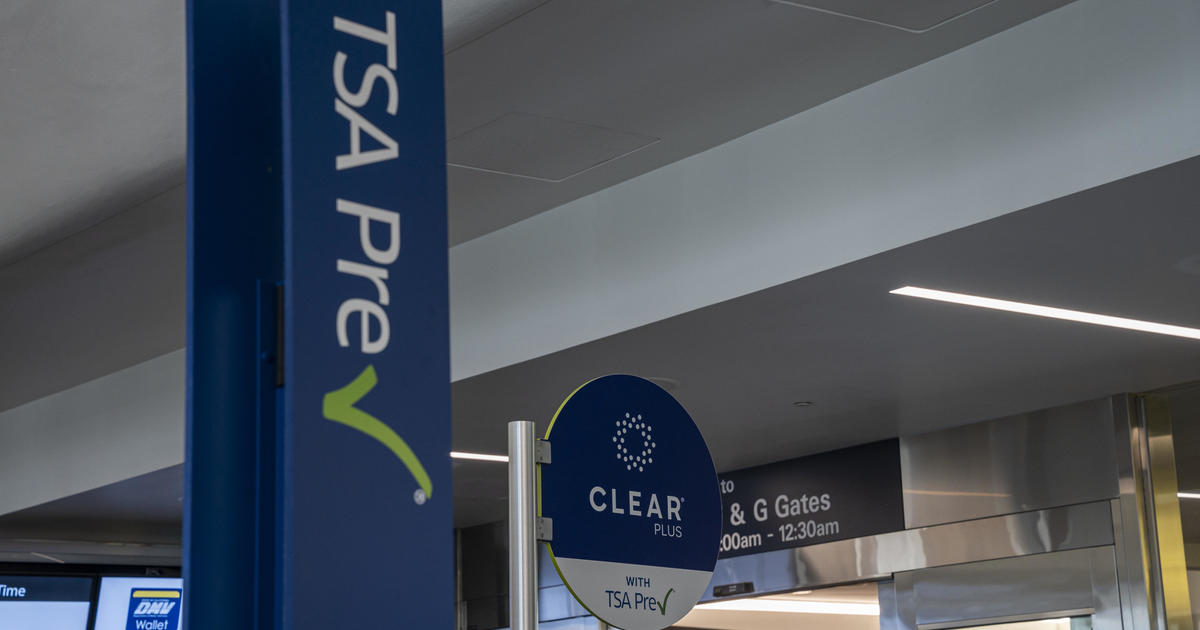A new bill, the first of its kind in the U.S., would ban security screening company Clear from operating at California airports as lawmakers take aim at companies that let consumers pay to pass through security ahead of other travelers.
Sen. Josh Newman, a California Democrat and the sponsor of the legislation, said Clear effectively lets wealthier people skip in front of passengers who have been waiting to be screened by Transportation Security Administration agents.
“It’s a basic equity issue when you see people subscribed to a concierge service being escorted in front of people who have waited a long time to get to the front of TSA line,” Newman told CBS MoneyWatch. “Everyone is beaten down by the travel experience, and if Clear escorts a customer in front of you and tells TSA, ‘Sorry, I have someone better,’ it’s really frustrating.”
If passed, the bill would bar Clear, a private security clearance company founded in 2010, from airports in California. Clear charges members $189 per year to verify passengers’ identities at airports and escort them through security, allowing them to bypass TSA checkpoints. The service is in use at roughly 50 airports across the U.S., as well as at dozens of sports stadiums and other venues.



PPP falls apart when you consider the price of consumer electronics, electricity, gasoline, airfare…
In the Dominican Republic you can’t get completely stable electricity. It just doesn’t happen without generators/batteries. Generators aren’t suddenly cheaper in DR. It’s 20DOP for 1kwh of electricity in DR, or $0.34 USD/kwh. I pay less in the greater Boston area. Wages there are way, WAY below 30k/year. The thought of having air conditioning at home is practically impossible for almost all who live there.
I love how you nitpicked the chile reference (with no counterpoint whatsoever) but it’s true across Latin America. Imported goods to poorer nations generally cost way above and beyond what the US pays…unless it’s prescription drugs because almost all other nations negotiate those prices to be much, much less than what the US pays (and only just started negotiating… for JUST Medicare.) I’m sure there are other examples as well. The PPP is so far apart on imports it’s insane. Often times things are sold in the US even if they are made locally because the price in the US is way above and beyond what the locals can afford.
And you’re not cherry picking? I’ve been to developing countries. It’s not cardboard shacks. Yeah they don’t generally have central air and electricity cuts are common. But they have houses, mass transit, good food, bars, smartphones, etc.
Things have improved a lot over the last fifty years. If you want to complain that a bag of Cheetos is expensive and they have to buy Rosquillas de Quesito instead you’re not going to find much sympathy among people actually trying to improve lives.
Also, I did provide a counter example. I didn’t mention India just for giggles. It’s got one of the largest populations that still score as poverty stricken in the global sense. That don’t have running water, don’t have access to transit, smart phones, healthcare, good jobs, electricity, or safe food.
Huge qol improvements in india https://www.youtube.com/watch?v=CXTZVKYYyig
I’m not really a fan of BI for hard info but I checked back in and it looks like they’ve basically eliminated extreme poverty.
This is the stuff I like to read about -
So yeah, I’m absolutely elated to read that.
Man… they use a metric of $2.57/day in 2023 dollars to define the level of extreme poverty? That’s $938.05 a year. Just wow.
Yeah. When they say extreme poverty they mean it.